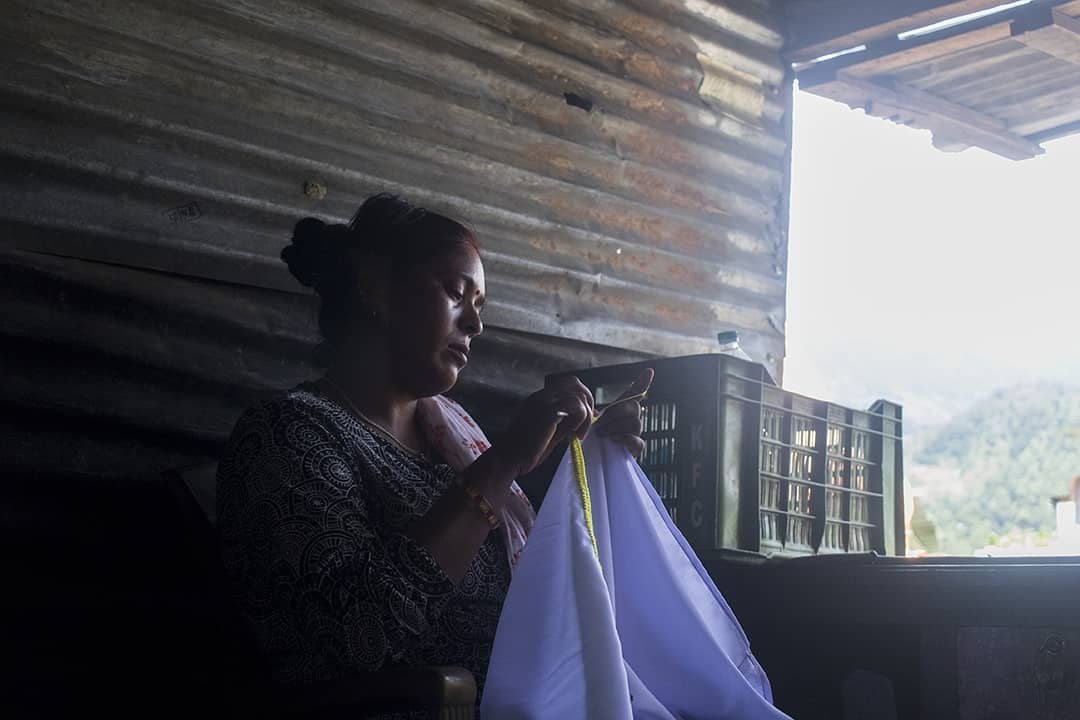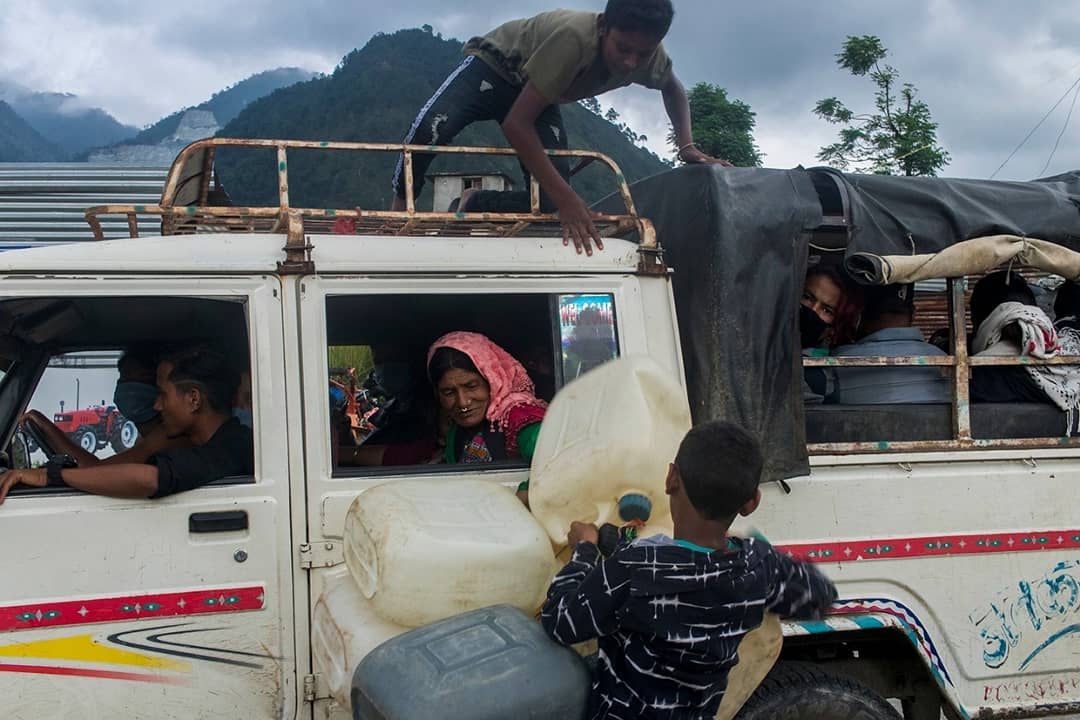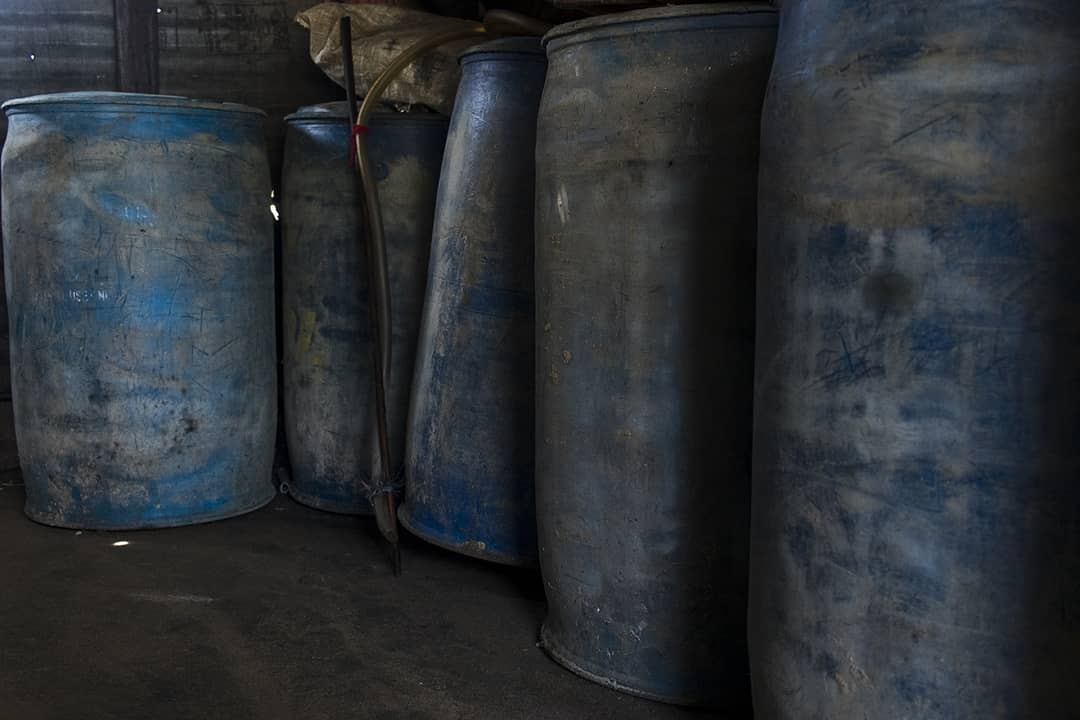Daily worries by Kishor Maharjan

DAILY WORRIES: In Martadi, near the town’s bus park stands a rusty tin box where Tulsi Giri, 31, has been selling petrol for the last three years. There are no designated petrol pumps in Bajura, so Giri’s husband started the shop five years ago, and she took over when he got a job as a driver.

On a hot September afternoon, Giri sits on a plastic chair resting her leg on one of the empty petrol jars and weaving a decorative curtain for her husband’s jeep. Pre pandemic Giri hardly had time to sit but the lockdowns and roads damaged by the monsoon mean business is sparse. “Limited customers, limited petrol, and lots of free time,” says Giri. She gets her petrol transported to her and Giri sometimes has to be creative–20-liter jars are carried by mules, transported by jeep, and sometimes carried by porters.

Giri sells petrol at a higher price than in the petrol stations, and the locals have to buy from her shop as there are no other means of getting fuel. “I have 16 members in my family, the government put the country in lockdown but we still have to eat and pay our loans,” says Giri. This is harvest season in Bajura, but Giri’s farmland was swept away by recent floods. “Fortunately, I still have my shop and we are surviving with whatever means possible,” adds Giri.
Photos and Text: Kishor Maharjan @kishor.maharjan
Edit: Mallika Aryal @mikaness
#nepalphotoproject #Nepal #storytelling #storiesofpandemic #covidresponse #coronavirus #fear #market #fuel #highway #publictransport #localeconomy #countryside #farwestnepal
